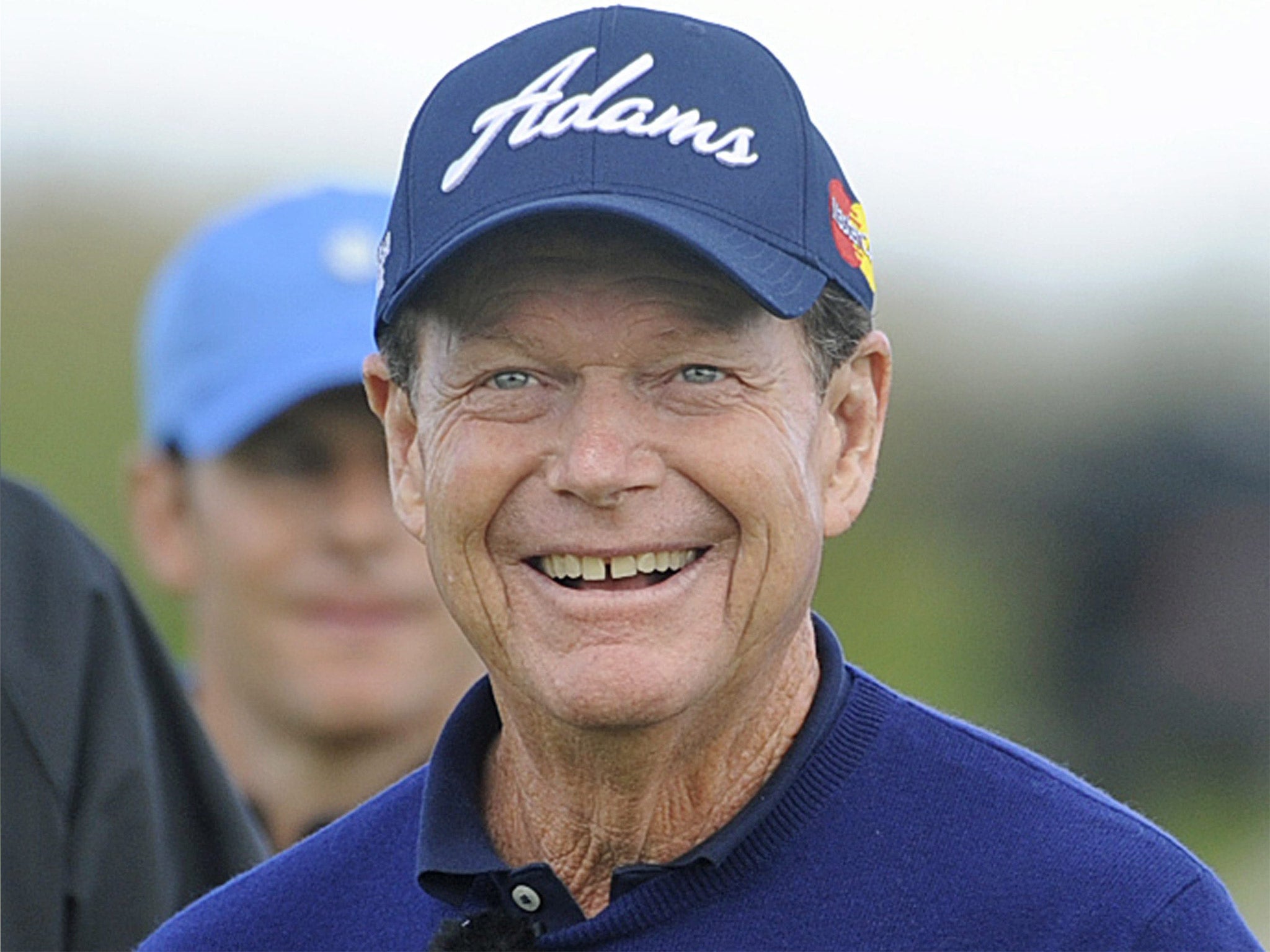The Open 2015: 'It's a bit like death. The finality of the end is here,' says Tom Watson ahead of his emotional goodbye at St Andrews
Eight-time major winner to bow out after glittering career

The Royal and Ancient missed a trick. Ahead of his final Open Championship they should have invited Tom Watson to address St Andrews beneath the grandstands at the 18th hole and sold tickets to boot. His press conference was alternative golfing theatre, a word-association game sending recollections tumbling whimsically along the synapses, gathered up in a rich tapestry beautifully drawn.
There was a whiff of controversy, too, when asked to reflect on the last time he faced a British audience in Scotland beset by the acid critique of Phil Mickelson in the immediacy of Ryder Cup defeat last year. Though the association of Mickelson with sour grapes sent up a flare, the intent was not to convey bitterness, rather frustration and dismay.
“That was a disappointment to me,” Watson said. “Phil was very disappointed about not being able to play. It was kind of sour grapes. That’s understandable. We just got waxed, the whole team, and the disappointment was just there. We let our hearts talk for us.”
Watson and Mickelson will not holiday together, but a semblance of respect endures. “We’re cordial. I saw him last night, we said hello, and yeah, we were fine.”
The Open defined Watson’s career, yielding five of his eight major victories. He never won at St Andrews, yet elsewhere Scotland was more than profitable terrain, coughing up four Claret Jugs. The parting is proving harder than he imagined. “There is a certain sense of melancholy. You can sense that,” Watson admitted. “The regret that it’s over. I said it a few months ago, it’s a little bit like death. The finality of the end is here.”
Death might not be as final as he imagines. Should Watson finish in the top 10 here he is guaranteed a spot at Troon next year. And when Ivor Robson calls him to the first tee he won’t be thinking of a Friday farewell on the Swilcan Bridge. Intercepted by a fan as he walked from the 12th tee during practice on Sunday, Watson was asked if he could win this week. “You bet,” came the response without breaking step.
That was peak Watson talking, a voice from the past, from the mid-Seventies when his decade as the game’s ultimate reference point began. His first Open victory on debut at Carnoustie in 1975 via a play-off against Jack Newton, came as a surprise, the memory of which centres not on the winning putt but a knock at the door as he was about to leave for the course on the final morning.
“I was leaving the house, and it’s raining, it’s cold, and here comes a little Scottish girl, comes up to the front door and said, ‘Mr. Watson, please take this for good luck.’ I could barely understand her, but I finally figured it out. She gave me a little thing of tinfoil, and it was some white heather, and I kept that in my bag for years for good luck, and it brought me good luck.”
At 65 Watson tends towards the philosophical over the analytical, his memories embracing not just his own contribution but that of others who have left an indelible mark. It is an attitude that allows him to look back without reeling whenever his near-miss at Turnberry in 2009 enters the conversation, demonstrating how with age we adjust to past traumas.
“What happens, happens. I’ve got more than my share of lucky bounces because I feel like I’m lucky. I feel grateful to have accomplished what I’ve accomplished, and I hope that I’ve entertained people along the way. I hope I’ve hit some shots that they remember.
“They ask me about the shot I remember most in the Open Championship. It’s the two-iron at Birkdale in ’83 on the final hole. I mean, I hit that just 100 per cent, the best two-iron I’ve ever hit.
“I try not to remember the bad shots, but there’s some memories there, the shot I hit on the Road Hole here in ’84. I just hit a terrible shot. I pushed it 30 yards right of where I was trying to hit it. It wasn’t even close.”
That was one of the bad days, if coming second to Seve Ballesteros can ever be described thus. Besides, Watson’s still here, celebrating a life, a privilege tragically denied the Spanish totem.
Join our commenting forum
Join thought-provoking conversations, follow other Independent readers and see their replies
Comments
Bookmark popover
Removed from bookmarks